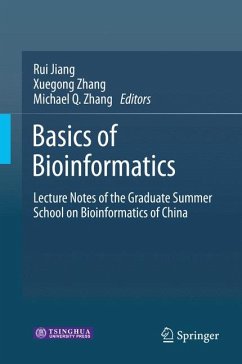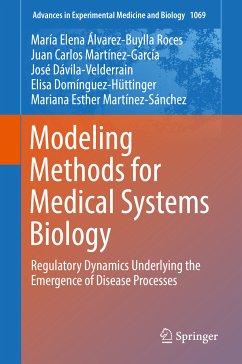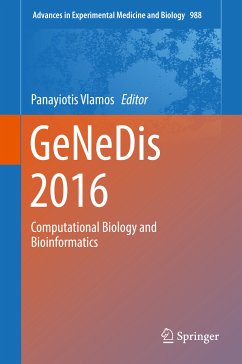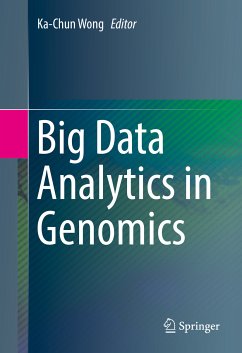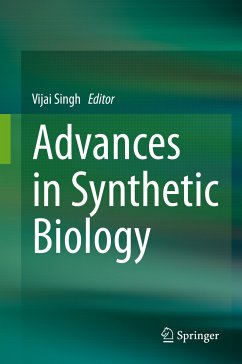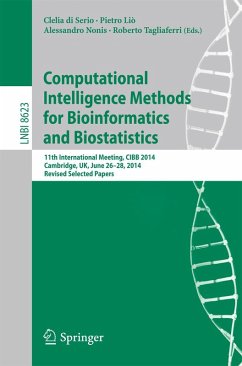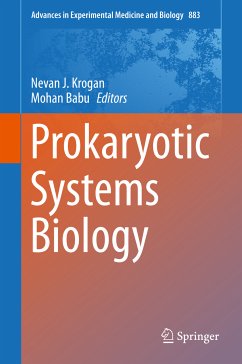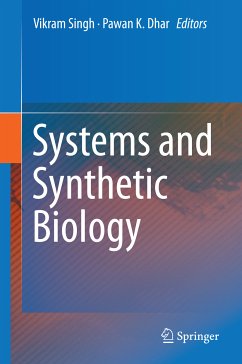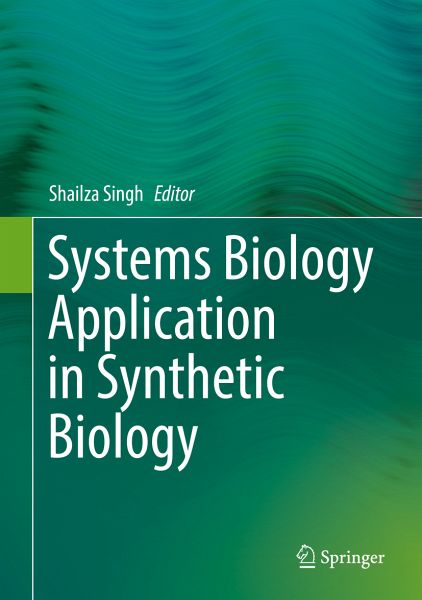
Systems Biology Application in Synthetic Biology (eBook, PDF)
Versandkostenfrei!
Sofort per Download lieferbar
112,95 €
inkl. MwSt.
Weitere Ausgaben:

PAYBACK Punkte
56 °P sammeln!
This book introduces students to methods that will help them understand behaviour in terms of cellular components and their interactions in non-intuitive ways, which calls for an interdisciplinary approach combining mathematical, chemical, computational and biological strategies. Tibor Ganti was one of the early pioneers who proposed a theoretical framework to understand living principles in terms of chemical transformation cycles and their coupling. The twenty-first century then brought with it a novel 'systems' paradigm, which shone new light on all previous work and was accompanied by numer...
This book introduces students to methods that will help them understand behaviour in terms of cellular components and their interactions in non-intuitive ways, which calls for an interdisciplinary approach combining mathematical, chemical, computational and biological strategies. Tibor Ganti was one of the early pioneers who proposed a theoretical framework to understand living principles in terms of chemical transformation cycles and their coupling. The twenty-first century then brought with it a novel 'systems' paradigm, which shone new light on all previous work and was accompanied by numerous implications for the way we conceive of chemical and biological complexity today.
This book seeks to equip students to take advantage of any field that investigates living systems. Based on a conceptualisation of science-oriented branches, engineering-oriented branches and biology as astoundingly complex fields, those structures laden with biochemical detail encompass a deeper theory unifying our knowledge of designed systems.
Readers will be pleasantly surprised at how lucidly the topics are presented. The book offers an indispensable resource for students and professionals working in systems and synthetic biology or any of the various related fields of research.
This book seeks to equip students to take advantage of any field that investigates living systems. Based on a conceptualisation of science-oriented branches, engineering-oriented branches and biology as astoundingly complex fields, those structures laden with biochemical detail encompass a deeper theory unifying our knowledge of designed systems.
Readers will be pleasantly surprised at how lucidly the topics are presented. The book offers an indispensable resource for students and professionals working in systems and synthetic biology or any of the various related fields of research.
Dieser Download kann aus rechtlichen Gründen nur mit Rechnungsadresse in A, B, BG, CY, CZ, D, DK, EW, E, FIN, F, GR, HR, H, IRL, I, LT, L, LR, M, NL, PL, P, R, S, SLO, SK ausgeliefert werden.





